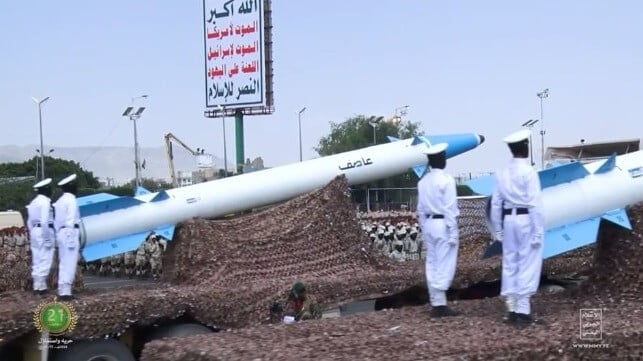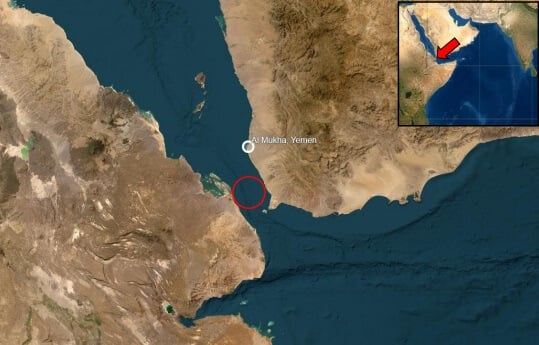Houthi Forces Attack Greek Bulker in Red Sea

Yemen's Houthi rebels have launched another attack on a merchant ship, ending a comparatively peaceful gap of 18 days in the Red Sea. The attack followed two days after Israel's long-expected airstrike on Iran, the Houthi organization's primary sponsor.
On Monday at about 1435 hours GMT, the master of a merchant ship reported an explosion near his ship. A second explosion followed at 1503, followed by a third at 1637. The vessel and the crew are reported safe and are continuing to the next port of call, according to the Royal Navy's UK Maritime Trade Operations (UKMTO). The multiple-strike pattern follows the recent Houthi practice of targeting a vessel repeatedly as it transits past the Strait of Bab el-Mandeb.
EOS Risk Group has identified the target as the 80,000 dwt bulker Motaro. The vessel's AIS signal was last detected southbound in the Red Sea on October 27, declaring the Chinese port of Changjiangkou as her destination.

Approximate attack location (UKMTO)
The Houthi group claims to target vessels connected to Israel and its allies, either by operational activity or ownership. Motaro is Greek-owned and operated, and her Pole Star AIS record shows no visits to Israel in the last three years.
On Monday night, a Houthi military spokesman confirmed an attack on the Motaro and also claimed unconfirmed strikes on the SC Montreal and Maersk Kowloon in the Arabian Sea. The spokesman claimed that the attacks were in retaliation for "the violation by the companies that own them of the decision to ban entry to the ports of occupied Palestine."

that matters most
Get the latest maritime news delivered to your inbox daily.
U.S. Central Command has yet to confirm any of the strikes. It was the first confirmed Houthi anti-shipping activity since U.S. Air Force bombers hit the militant group's underground missile storage facilities on October 17.
American security sources recently told the Wall Street Journal that Russia provides satellite targeting data to Iran, which Iranian agents pass on to Houthi leaders for operational use against Western shipping. Iran also provides most of the Houthi group's missile technology and is suspected of conducting on-scene intelligence gathering on the Houthis' behalf in the Gulf of Aden.
